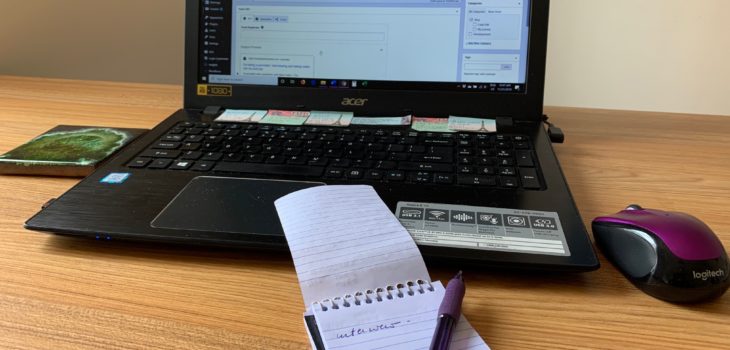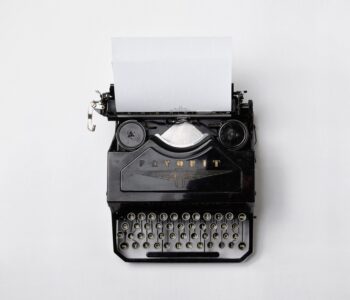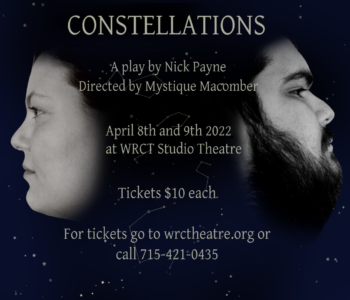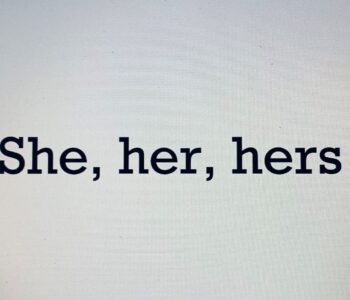
On being a journalist: Interviewing and taking notes can…
I got to be a journalist recently. It reminded me of the positive times I had as a reporter and writer for daily newspapers.
There’s a feeling I get, part way through an interview or organizing and cleaning up my notes, that is pure joy. It’s like I step outside myself, and I can see and feel what I’m doing, but I’m watching it, too. I can see my brain working, the wheels turning, as I put it together.
Article writing is like that for me. I gather the information, then review it and see what jumps out as the main point I want to share with readers. Then everything else falls into place. A logical structure emerges. Quotes line up. There’s a flow, and it’s essentially written. I simply have to type it.
That, of course, is the best-case scenario. Sometimes, it’s more challenging, especially on deadline when you don’t have as many sources as you need or information is sketchy.
Journalist interview
But this recent journalism gig was positive. I think a big part of it was actually being able to interview someone in person. So much of what I write today is from existing content, although I have a couple of clients who record audio files, and I turn it into whatever document type they need. But actually doing an interview, with a give and take of questions and answers, was like stepping back in time to my newspaper days.
Granted, I was a bit rusty. I had prepared my questions – more than I thought I’d need – and I used them all. But then I had to follow up on things my subject said, and that’s where I floundered a bit. I was trying to formulate a question, but if you know me, you know I tend to talk through things to figure out what I want to say. I wasn’t able to just ask a question, I had to figure out what I wanted to ask, and in the process, I answered my original question but came up with a different one anyway.
It was awkward, and I pointed it out and apologized. My subject laughed and said it was OK. Then she answered the new question succinctly. She’s more used to the process than I am, at this point.
Still, despite the rust, it was good to take the old journalism skills for a spin. I look forward to finishing up the article and sharing this woman’s story with readers. It’s a powerful message, and I’m pleased I can work on it.
That’s still the most important aspect of journalism for me – reaching readers and giving them valuable information that can help them, teach them or improve their lives in some way. It’s about making a difference in my community – whatever that community may be, geographically or online.
How to Be a Better Writer Tip
Conduct an interview
I’ve written in the past about interviewing techniques. You can read about how to prepare for an interview, how to conduct an interview, how to prepare questions, how to do your homework and writing your questions down.
But I offer you a challenge. If you’ve never done an interview, give it a try. It doesn’t have to be for paid work. Do it for fun.
Pick a subject – someone you know who will be game. Prepare some questions, pick a time to do the interview and do it. Take notes. You may wish to record it, but do take notes as your subject talks.
You don’t need to write anything from it, if you don’t want to, but it’s a good skill to learn.
If you need a place to start, try family history. Interview an older relative to learn about family members who are gone or what life was like in an earlier time. You’ll probably learn something interesting in the process!
Then, if you wish, share your results. I’d like to know how it went for you!



